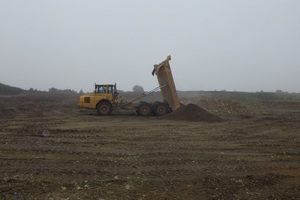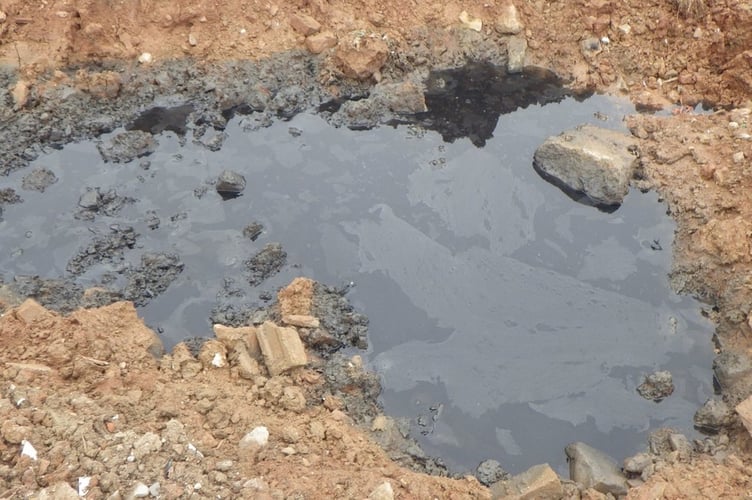A waste contractor who turned a disused quarry into a toxic dump has died while facing a legal battle to keep £1.5 million that he made from his illegal business.
Mark Foley was due to appear at a week-long Proceeds of Crime hearing at Exeter Crown Court on Monday, July 15, but the Judge was told that he had died within the past few weeks.
His bank accounts and other assets which are worth about £1.5 million remain frozen by a court order and the prosecution will now try to extract the money from his estate by civil proceedings in the High Court.
Foley was jailed in 2021 for dumping huge amounts of shredded metal and assorted plastics in Stowey Quarry, near Wells, Somerset. The Environment Agency described him at the time as one of Britain’s worst polluters.
He left the quarry needing years of restorative work after dumping shredded metal and plastics from scrapped cars, which his firm falsely described as ‘soil substitute’. The cost of restoring it is now estimated at £25 million.

Foley, aged 64, of Mill Lane, Castleton, Cardiff, was jailed for two years and three months at Bristol Crown Court in 2021.
He and his firm M E Foley (Contractors) admitted causing pollution and providing false information to the Environment Agency. The company was fined £72,000.
The Environment Agency initiated a Proceeds of Crime Act case and obtained restraint orders on assets worth £1.5 million but they also alleged he transferred £1 million to his wife before he went to jail.
Mr Brendon Moorhouse, prosecuting on behalf of the EA, told Exeter Crown Court that the hearing which had been scheduled for this week could not take place because Mr Foley had died and a copy of a death certificate had been sent to the court to confirm this.
He said the restrain order on £1.5 million assets should remain in place until civil proceedings are started in the High Court, when it will be replaced by a freezing order. The case will then be pursued against his estate.
This week’s hearing, at which Mr Foley’s wife was to be given an opportunity to make representation, was due to finalise the seizure of Mr Foley’s assets.
In the original case, the Environment Agency said public health had been put at risk by Foley and his company because toxic and potentially carcinogenic materials had been dumped illegally.
The company filed false returns which claimed the waste they were accepting was safe when they were actually dumping 100,000 tonnes of hazardous material.
This included shredded fragmentiser waste, automotive shredded residue, domestic and mixed waste and other hazardous material. Some of it was buried under soil to conceal what was going on.
The illegal dumping happened in 2016 and led to an intensive investigation by the Environment Agency. It concluded the pollution was one of the most serious risks of harm in the country during the past 30 years.

Monitoring of landfill gases and sampling of nearby streams showed an elevated concentration of gases together with leachate breaking out onto the surface of some surrounding fields.
The investigation also questioned the true amount of waste received by the site since its operation began in 2012. The amount deposited at the site by 2016 was closer to 200,000 tonnes, which was well above the 65,000 tonnes limit.
Rebecca Kirk of the Environment Agency said: "This was environmental offending of the highest order."
Two companies which dumped waste at the quarry were ordered to pay more than £800,000 in fines and costs.





Comments
This article has no comments yet. Be the first to leave a comment.